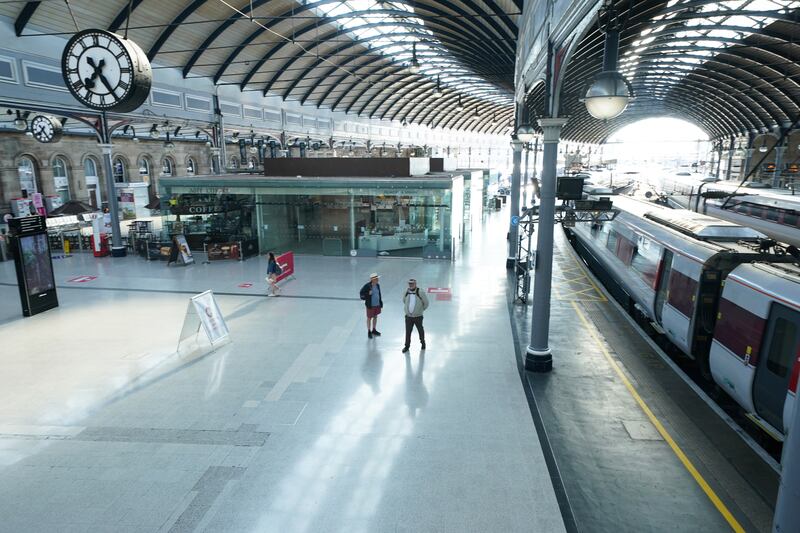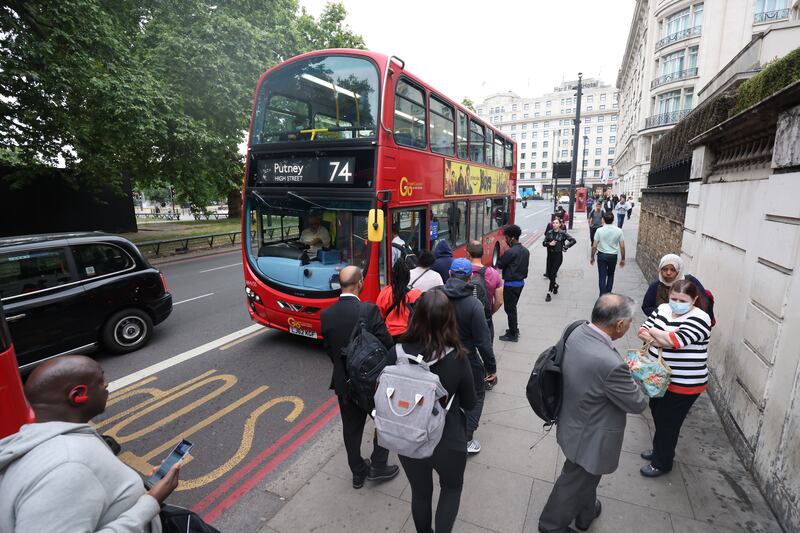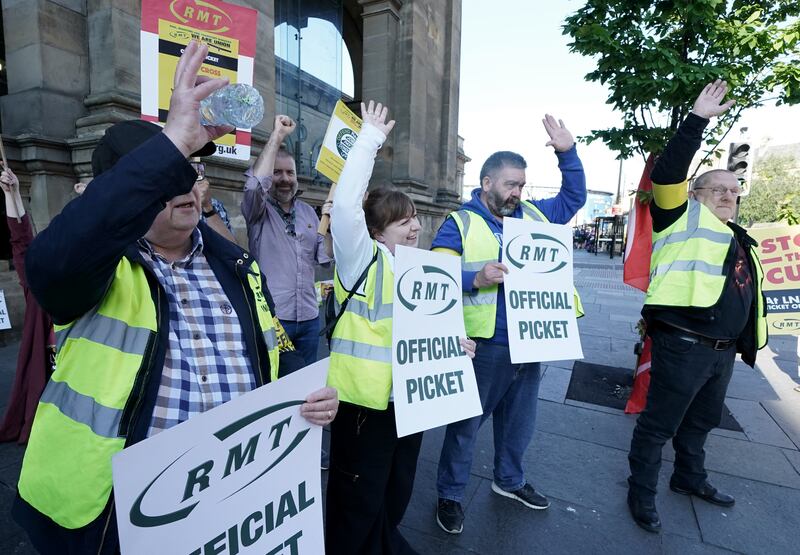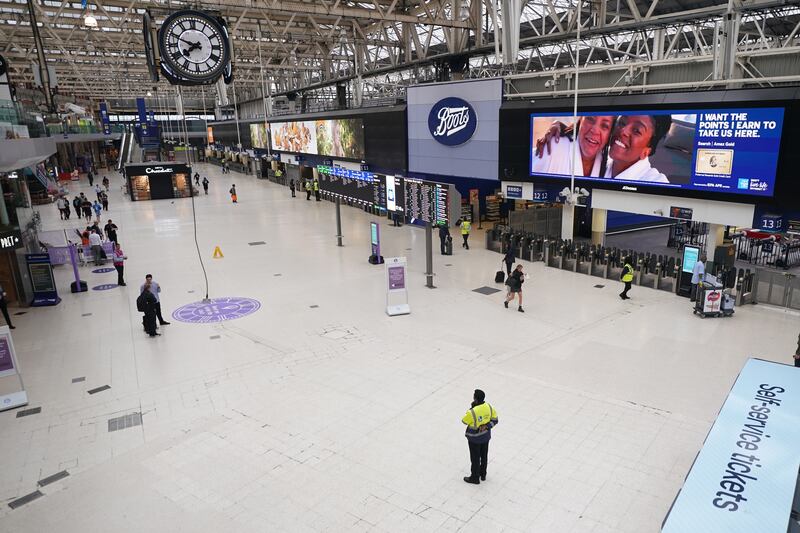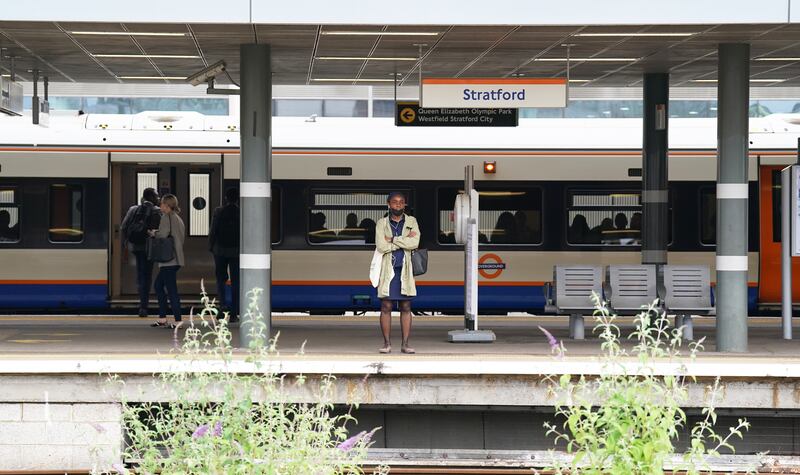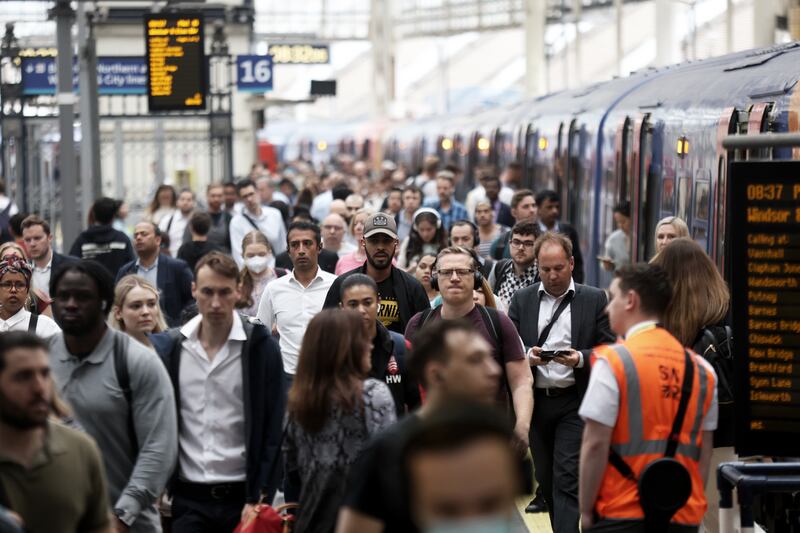Thousands of rail workers staged the latest day-long walkout over pay and working conditions on Thursday, plunging commuters into chaos and forcing many people to stay at home.
Only around a fifth of services are set to operate on heavily reduced hours, with those still running starting much later in the morning than usual and to end as early as 6.30pm.
In an attempt to lessen the upheaval from strikes in the future, the government is planning to introduce legislation which would enable businesses to supply skilled agency workers to plug staffing gaps.
Ministers pointed out that, under current trade union laws, employment firms are restricted from supplying temporary agency workers to cover for strikers, saying it can have a “disproportionate impact”.
The government said the legislation will repeal the “burdensome” legal restrictions. This will give companies affected by strike action the freedom to tap into the services of employment businesses, which can provide skilled, temporary agency staff at short notice.
The near double digit inflation is forcing other industrial and government workers to ratchet up their pay demands. Education Secretary Nadhim Zahawi said teachers going on strike would be “irresponsible”, as the biggest teachers’ union warned of strikes over pay and workload.

Mr Zahawi said such a move would be “unfair” after the upheaval to children’s learning caused by the Covid-19 pandemic.
The National Education Union said on Wednesday that it would consult its members in the autumn, “strongly encouraging them” to back strikes if the government does not respond to its concerns in the next few months.
"Young people have suffered more disruption than any generation that’s gone before them and to compound that now, as recovery is in full swing and families are thinking about their next big step following school or college, would be unforgivable and unfair,” Mr Zahawi wrote in The Daily Telegraph.
The union said pay cuts and high workload were hitting teacher recruitment and retention, causing “real damage” to education.
It criticised the government’s evidence to the School Teachers’ Review Body proposing a 3 per cent pay increase for most teachers in England.
The union said that would mean a “huge” pay cut on the basis of Wednesday’s inflation figures of 9.1 per cent on the consumer price index (CPI) measure and 11.7 per cent for the retail price index (RPI).
NEU deputy general secretary Niamh Sweeney told Sky News that a teachers’ strike was “more likely than it’s been in my 20 years of working in the profession”.
“Teachers are saying to us that they are finding it difficult to get to the end of the month,” Mr Sweeney said. “Their heating bills and their fuel bills means that they are struggling to survive.”
In a letter to Mr Zahawi, the union called for a fully funded inflation-plus pay increase greater than inflation for all teachers. It also demanded action on salaries for other staff such as support workers, and ways to reduce workloads.
The minister was told that teachers' pay has fallen by a fifth in real terms since 2010, even before this year’s increases in inflation, while their workload remains at “unsustainable” levels.
More train strikes if settlement is not reached
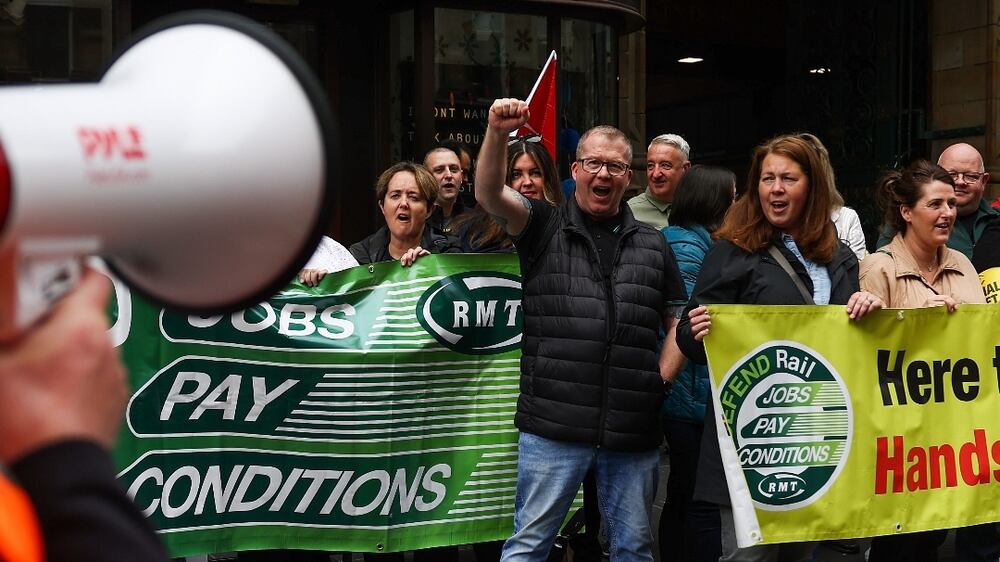
“Alongside the decline in teacher pay in real terms against inflation, it has also declined in relative terms against earnings,” the letter says.
“Average teacher salaries are at their lowest level compared with average earnings across the economy in over 40 years.
“Teachers and school leaders often tell us that workload is their predominant concern but, right now, our members are telling us pay is a big issue too.
“The combination of unsustainable hours, the work intensity during those hours, and ever-falling pay levels are damaging our schools and the young people we are educating.
“Teachers are looking at their working hours and their pay and calculating hourly rates, which are alarmingly low.
“The latest teacher training figures are very worrying; applications have fallen by 24 per cent compared with last year.
“One in eight newly qualified teachers left the job in their first year of teaching. These young people have often finished a degree, then completed a postgraduate qualification.
“They are a great loss to the profession, but more importantly to the nation’s pupils who rely on their teachers to educate and care for them.
“You must respond to the new economic reality of double-digit inflation and the threat this poses to teacher living standards.
“We call on you to commit to an inflation-plus increase for all teachers. It is not good enough to only propose higher increases for beginner teachers (which are themselves likely to be lower than inflation).
“The current inaction from the government on these questions is causing real damage to education and to our members’ livelihoods.
“We have to tell you that failing sufficient action by you, in the autumn term, we will consult our members on their willingness to take industrial action.
“And we will be strongly encouraging them to vote yes. We can no longer stand by while you run both education and educators into the ground.”
Chaos of rail strikes drags on
The threat of teachers walking out comes amid the biggest rail strikes in Britain in more than 30 years.
About 40,000 members of the Rail, Maritime and Transport (RMT) union at Network Rail and 13 train operators began their second full day of strikes on Thursday after another round of talks with the government on Wednesday failed.
The union and Number 10 are embroiled in a bitter row over pay, jobs and conditions.
Only one in five trains will run on Thursday and these are mostly restricted to main lines, with about half of the network closed. Services started later than normal at 7.30am, and will shut down early at 6.30pm.
A third day of strike action is planned for Saturday. The strikes have wreaked havoc with millions of people's travel and work plans. As a result, many workers have been forced to work from home.
Those who cannot work from home have been forced to use taxis and overcrowded buses to reach their workplace.
The Conservative-led government has lambasted the union for calling the strikes, saying the action had caused serious disruption for people trying to travel to work and pupils sitting exams.
The RMT accused Transport Secretary Grant Shapps of “wrecking” negotiations.
“Grant Shapps has wrecked these negotiations by not allowing Network Rail to withdraw their letter threatening redundancy for 2,900 of our members,” RMT general secretary Mick Lynch said.
“Until the government unshackle Network Rail and the train operating companies, it is not going to be possible for a negotiated settlement to be agreed.
“We will continue with our industrial campaign until we get a negotiated settlement that delivers job security and a pay rise for our members that deals with the escalating cost-of-living crisis,” he said, pointing out that many rail workers have not had a salary increase in 10 years.
Mr Shapps hit back, saying the RMT claim was a “lie”.
Mr Lynch told Sky News on Thursday that the union was continuing to hold out for a pledge from the government not to make staff redundant.
“Once we’ve got that, we can move forward,” he said and added that pay could be negotiated as well as job security and conditions.
